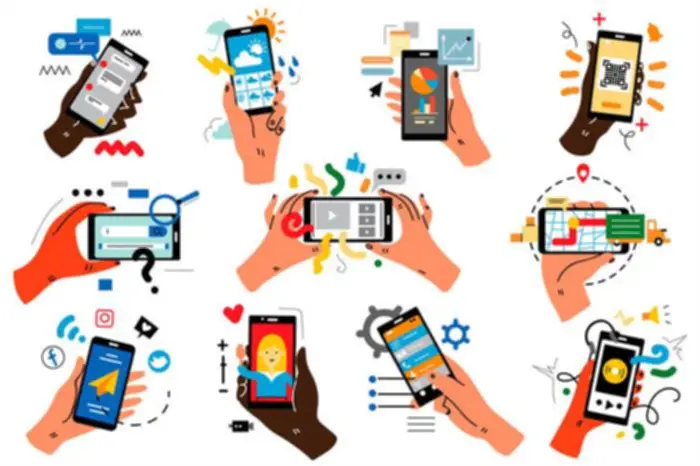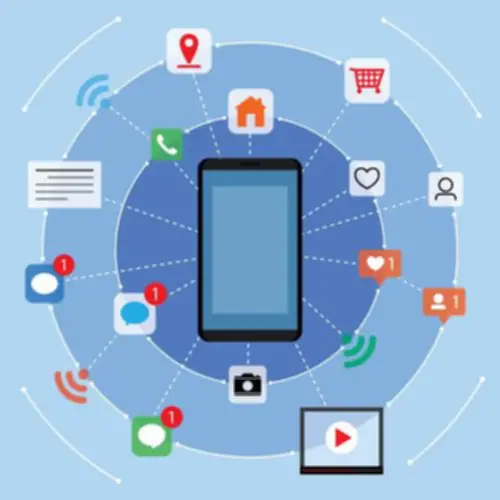It’s not only about getting products delivered on time; it’s about making certain everything runs properly at each stage—before, during https://www.globalcloudteam.com/, and after the supply. With this software program, you can analyze the data to see how your business is doing and plan your subsequent steps. It helps you make better decisions by spotting problems, identifying market trends, and finding new opportunities.
This means the knowledge you get is reliable and constant throughout the board. Workday – a cloud-based HRM platform that gives a variety of tools for HR administration, including workforce planning, recruiting, talent management, and advantages administration. JDA Software – a cloud-based SCM platform that gives a range of instruments for provide chain planning, execution, and collaboration, as properly as machine studying and AI capabilities. Low-code, no-code, and AI-native development platforms might help strike this stability. They empower non-developers to construct apps within a secure framework configured by IT or platform groups. These platforms apply constraints through pre-configure information sources, accredited integrations, and built-in access management.

Enterprise purposes simplify this by automating repetitive processes. Advertising automation platforms handle and automate advertising campaigns across e-mail, social media, and different channels. They usually use segmentation and AI-based lead scoring to guarantee that the best message reaches the right audience at the proper time. The finance division is chasing month-end reviews, sales are trying to shut offers faster, and operations are juggling supply chain updates. Meetings, follow-ups, and information scattered throughout countless platforms feel daunting, like attempting to steer a ship in a storm.
Either on-premises or within the cloud, enterprise resource planning solutions connect and integrate completely different departments in a single system. This merger helps present transparency and visibility into your business activities. How can large-scale organizations automate their workflows and operations, and engage in smarter decision-making? With an enterprise application, after all; which we’re going to speak about in-depth on this article.
- Enterprise applications are a holistically inclusive software answer that runs in harmony with the core aims of an organization.
- Plus, with the fast tempo of technological advancements, preserving the functions up to date also can pose a problem.
- Its scalability and flexibility also make it appropriate for non-software groups seeking to manage duties and tasks effectively.
- By carefully assessing all of the elements of your corporation requirements, you’ll have the ability to construct an enterprise tech stack that not only meets today’s demands but positions your business for long-term success.
- Guests will discover a full-service resort with traditional rooms, glorious eating, a lagoon-style pool, an Aveda spa, and a world-class, conventional golf course.
Is Your Corporation Ready For A Transformation?

ERP techniques are used to handle all elements of an organization’s business operations, from accounting and finance to inventory and provide chain management. They additionally sometimes provide advanced security and entry controls, in addition to sturdy reporting and analytics capabilities. Enterprise apps enhances the agility of organizations and goals types of enterprise software to boost the business course of. You can develop individual purposes that record customer transactions or improves provide chain visibility. You can also create a single enterprise net app for ERP or CRM systems that manages all these tasks.
Verify The Project Staff And Experience Of The Software Firm
These methods are tailored for large enterprises and governmental organizations to satisfy their wants and demands. Enterprise purposes combine with current methods, offer various functionalities like CRM and ERP, and prioritize security. They guarantee scalability, reliability, and availability whereas centralizing knowledge administration. Enterprise purposes enable for personalisation, have consumer entry management, and embody enterprise intelligence and analytics instruments. Enterprise functions are sturdy software techniques that assist and handle important enterprise functions—from finance and operations to customer relations and supply chain logistics. Have you ever considered how expertise can optimize performance on a grand scale in a corporate setting?
Therefore, by deciding on the best SCM app for their wants, companies can scale back prices, enhance effectivity, and enhance buyer satisfaction. IBM Sterling Provide Chain Suite – a cloud-based SCM platform that provides a spread of instruments for supply chain visibility, planning, and execution, in addition to real-time collaboration and analytics. SCM may help optimize the move of goods and companies how to use ai for ux design from suppliers to clients to reduce back costs and improve efficiency.
That can embrace using HTTPS and encrypted tokens, imposing strict authentication and authorization, and validating all information at the edges. The more methods you join, the more essential it is to verify each one only has entry to precisely what it wants. A clear governance mannequin avoids chaos whereas nonetheless giving groups room to maneuver. With 14+ years of experience and 300+ software program options developed, our staff turns your ideas into solutions. Depending on the event strategy, you’ll be able to choose the technologies for enterprise app development.
Collections of data for CRM software usage happen at every step of a presale process, including gross sales and marketing, name facilities, assist desks, and customer help service. The complexity of enterprise functions, nonetheless, pushes most companies to outsource the development of applications they want to run operations. After growth, the functions are introduced again in-house for deployment, a job that often requires a specialised data technology staff. They design the overall structure of enterprise purposes, together with how elements interact, how knowledge flows, and the place duties lie across the stack. This consists of deciding on applicable architectural types (e.g., microservices vs. monoliths), defining system boundaries, and making certain that platforms are constructed for long-term maintainability.
Total, enhanced data safety is an important benefit of using enterprise applications that may assist businesses to guard their knowledge and preserve their status. Enterprise purposes are the spine of recent enterprise operations, offering a unified platform to handle diverse features. They are designed to handle giant volumes of information and sophisticated workflows, making certain that each one enterprise processes are streamlined and efficient. By integrating with present techniques, these functions present a seamless move of knowledge across departments, enhancing collaboration and decision-making.
Their focus is on selecting technologies that are scalable, well-supported, and appropriate with the broader architecture. Beyond options and efficiency, they also have a look at integration potential and how easily teams can adopt and maintain the instruments over time. Enterprise application architecture defines how all of a company’s software program, both inner and external, works together to attain enterprise goals. It covers every thing from how apps are constructed, to how they communicate, to how knowledge flows, and the way systems scale over time. Modern enterprises rely on dozens of interconnected systems, each with its personal objective, tech stack, and data flows. It ensures that methods work together reliably and can scale with the enterprise.
Enterprise Useful Resource Planning (ERP) software manages and streamlines core business processes, connecting completely different departments to allow data to maneuver seamlessly all through the organization. ERP software program eliminates data silos and provides a real-time look into key enterprise activities and sources, enhancing decision-making, accuracy, and consistency. Enterprise applications are designed for multiple customers, handle giant volumes of information, supply advanced security measures, and combine with other enterprise systems like CRM, ERP, and SCM.







